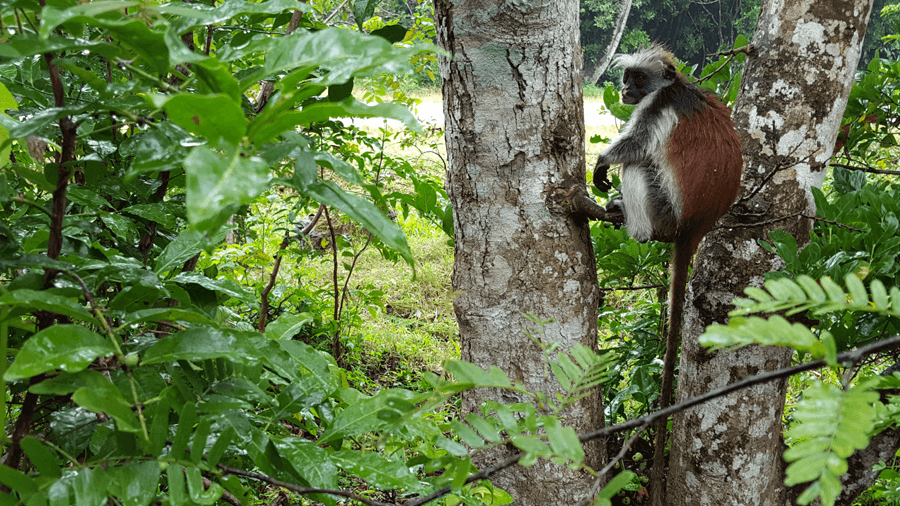Zanzibar Nature and Wildlife
The focus of a Zanzibar holiday is nature: as soon as you approach Zanzibar, the African island captivates with its very special charm: turquoise-blue bays and white beaches as far as the eye can see.
Zanzibar Landscape
Ocean: Beaches, Barrier Reef and Coral Banks
Zanzibar is surrounded by a barrier reef and numerous coral banks and thus offers a tropical underwater world that is second to none. Colorful schools of fish, dolphins and in some places sharks inhabit the Zanzibar waters.
On Land
On land, however, the mangrove forest is characteristic of the landscape. This jungle-like rainforest, typical of coral islands, with its meter-high coconut palms often reaches right down to the beach. It stretches across the undulating hilly landscape of the island, the highest point of which is Mount Masingini at 135 metres. In the interior of the island you will find numerous flowing waters and an extremely fertile soil, which coupled with the ideal climatic conditions is also the reason why so many different types of spices can be cultivated on the island.
Cinnamon, Pepper, Ginger, Vanilla and Cloves
Cinnamon, pepper, ginger, vanilla and cloves grow on the island, which is why it owes its nickname “Spice Island” to its spice plants.
Red Colobus Monkey
Zanzibar is also home to a variety of animal species, such as the red colobus monkey.
National Parks in Zanzibar
Zanzibar, the magical island in the Indian Ocean, has a diverse landscape that includes a number of national parks that should be part of any Zanzibar holiday.
Jozani Forest
The most famous is the Jozani Forest, which is home to a variety of animal species. The red Colobus monkey is particularly worth mentioning here. This monkey species is only native to Zanzibar and was threatened with extinction for a long time. Guided tours are offered through the Jozani National Park.
Ngezi Nature Reserve on Pemba
There is also the Ngezi Nature Reserve on Pemba, the smaller of Zanzibar’s two main islands. The Ngezi Forest has a large number of plants and animals and is particularly popular with nature lovers. Southwest of Pemba is the conservation island of Misali, also known as the “Jewel of Pemba”. Sea turtles frequent the white coral sand beaches of the Marine National Park to nest.
Chumbe Island Marine Reserve
The Chumbe Island Marine Reserve also impresses with its natural beach and the surrounding coral banks. The island is privately owned and therefore protected from external influences. However, the island is accessible to tourists.

